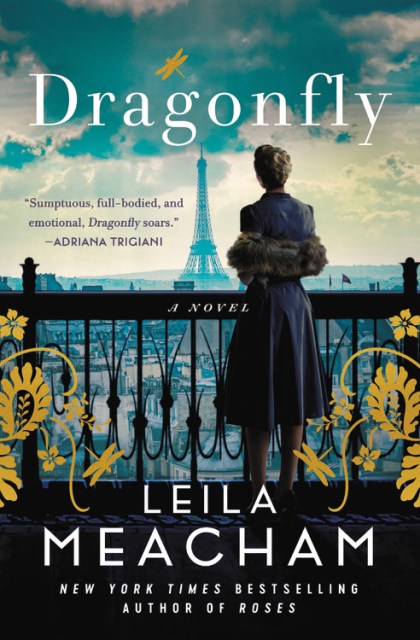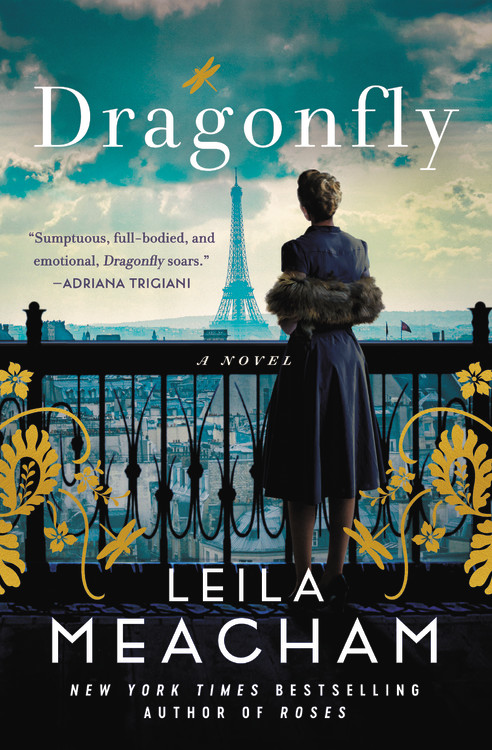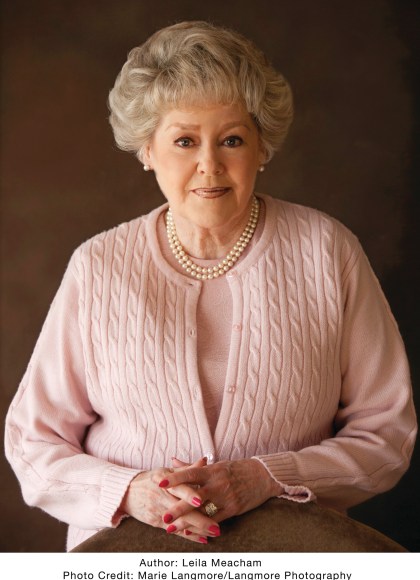Dragonfly
Contributors
Formats and Prices
Price
$19.99Price
$25.99 CADFormat
Format:
- Trade Paperback $19.99 $25.99 CAD
- ebook $11.99 $15.99 CAD
- Hardcover $47.00 $60.00 CAD
- Audiobook Download (Unabridged)
This item is a preorder. Your payment method will be charged immediately, and the product is expected to ship on or around July 7, 2020. This date is subject to change due to shipping delays beyond our control.
Also available from:
Read the USA Today bestseller from the author of Roses, a “sumptuous, full-bodied, and emotional” novel about five young spies embedded among the highest Nazi ranks in occupied Paris (Adriana Trigiani, NYT bestselling author of Tony’s Wife).
At the height of World War II, a handful of idealistic young Americans receive a mysterious letter from the government, asking them if they are willing to fight for their country. The men and women from very different backgrounds — a Texan athlete with German roots, an upper-crust son of a French mother and a wealthy businessman, a dirt-poor Midwestern fly fisherman, an orphaned fashion designer, and a ravishingly beautiful female fencer — all answer the call of duty, but each for a secret reason of her or his own. They bond immediately, in a group code-named Dragonfly.
Thus begins a dramatic cat-and-mouse game, as the group seeks to stay under the radar until a fatal misstep leads to the capture and the firing-squad execution of one of their team. But is everything as it seems, or is this one more elaborate act of spycraft?
Genre:
-
A Forbes "Best Historical Novels for Summer 2019" A USA Today Bestseller
Winner of the Philosophical Society of Texas' 2020 Fiction Book Prize -
"Gripping...In this fast-paced and enjoyable WWII espionage tale, Meacham takes readers to 1942 Nazi-occupied Paris to follow five American spies as they attempt to gather information to assist Allied and French Resistance forces.... Meacham's nail-biting tale will please fans looking for an intricate story of spycraft and deception."p.p1 {margin: 0.0px 0.0px 0.0px 0.0px; line-height: 20.0px; font: 13.0px 'Times New Roman'; color: #000000}span.s1 {font-kerning: none}Publishers Weekly
-
"Complex, epic, and rich in historical detail-an uplifting story of finding friendship behind enemy lines."p.p1 {margin: 0.0px 0.0px 0.0px 0.0px; font: 12.0px 'Times New Roman'}span.s1 {font-kerning: none}Kirkus
-
"Meacham ratchets the suspense ever tighter, while providing fascinating backstory on the intrepid five [American spies] as well as delivering a detail-rich portrait of Paris during the Occupation."p.p1 {margin: 0.0px 0.0px 0.0px 0.0px; font: 12.0px 'Times New Roman'}Booklist
-
"Leila Meacham is a gift to readers everywhere. With scope and daring, she creates worlds in her fiction that keep us turning pages long into the night. Sumptuous, full bodied and emotional, Dragonfly soars."p.p1 {margin: 0.0px 0.0px 0.0px 0.0px; line-height: 32.0px; font: 12.0px 'Times New Roman'; color: #000000}span.s1 {font-kerning: none}Adriana Trigiani, New York Times bestselling author of Tony's Wife
-
"I was immediately taken by the powerful and poetic storytelling of Leila Meacham. Dragonfly is a meticulously researched novel filled with unforgettable characters during the darkest time in history. Simply unstoppable!"p.p1 {margin: 0.0px 0.0px 0.0px 0.0px; line-height: 32.0px; font: 12.0px 'Times New Roman'; color: #000000}span.s1 {font-kerning: none}Armando Lucas Correa, New York Times bestselling author of The German Girl
-
"Dragonfly is a thrilling spy novel with a tender heart, a plot full of surprising twists, and a rich tapestry of historical detail. Caught up in the complexities of sympathetic characters whose divided loyalties force them to make dangerous choices, I couldn't stop turning the pages."p.p1 {margin: 0.0px 0.0px 0.0px 0.0px; line-height: 32.0px; font: 12.0px 'Times New Roman'; color: #000000}span.s1 {font-kerning: none}Kim van Alkemade, New York Times bestselling author of Orphan #8 and Bachelor Girl
-
"Meacham's impeccable pacing and razor-wire tension evoke the daily drama of life under a Reich whose French reign might have lasted little more than four years but felt like the thousand years that it threatened to endure."p.p1 {margin: 0.0px 0.0px 0.0px 0.0px; line-height: 18.0px; font: 13.0px 'Times New Roman'}span.s1 {font-kerning: none}Bookpage
-
"Thrilling."p.p1 {margin: 0.0px 0.0px 0.0px 0.0px; line-height: 17.0px; font: 14.7px Times; color: #000000}span.s1 {font-kerning: none}B&N Reads, July's Best New Fiction
-
"Dragonfly is one of those books you cannot put down...A masterpiece of story-telling with greatly written characters during one of the world's worst times with five brave Americans who put country over their own lives."p.p1 {margin: 0.0px 0.0px 0.0px 0.0px; line-height: 17.0px; font: 14.7px Times; color: #000000}span.s1 {font-kerning: none}Red Carpet Crash
-
"Set in German-occupied Paris during World War II, this captivating novel stars five young Americans who received mysterious letter asking them to "serve their country." They agree, creating a secret group---code-named Dragonfly---that goes undercover to infiltrate Nazi ranks. But when one of them is captured, they begin to question if things are what they seem. With drama and danger, it's impossible to put down."p.p1 {margin: 0.0px 0.0px 0.0px 0.0px; font: 15.0px 'Times New Roman'}span.s1 {font-kerning: none}Woman's World
-
"A riveting read. So many World War II stories are nothing but men and their guns...It's especially refreshing to see a story like this so focused on women who are as capable and gutsy as the men, with Victoria in particular being a standout character....There are more than a few surprises in Dragonfly, and the short, choppy chapters tend to leave you multiple cliffhangers to keep you hooked...As a novel it captures the espionage side of World War II, as well as the men and women who served in secret, with admirable grace and power."p.p1 {margin: 0.0px 0.0px 0.0px 0.0px; font: 14.0px Times; color: #000000}span.s1 {font-kerning: none}Houston Chronicle
-
"Meacham hooks the reader in the first paragraph and keeps the pages turning as the characters live on the brink of one potential clandestine calamity after another...Meacham's other historical novels, besides Roses, are Tumbleweeds, Somerset, and Titans. Each is an engaging and powerful tale, but Dragonfly may well be the most thrilling of them all."p.p1 {margin: 0.0px 0.0px 0.0px 0.0px; font: 14.0px 'Times New Roman'; color: #000000}span.s1 {font-kerning: none}Abilene Reporter News, A "Texas Reads" Pick
-
"A gripping tale."p.p1 {margin: 0.0px 0.0px 0.0px 0.0px; font: 15.0px 'Times New Roman'; color: #000000}span.s1 {font-kerning: none}D Magazine
-
"The thrills are tingly rather than electrifying, the leads are superficially satisfying, and the enemies meet their appropriate ends. A long and leisurely spy novel, reminiscent of a 1950s move."Library Journal
-
"Dragonfly by Leila Meacham is a spellbinding novel. The story from the very first line pulls readers into the mystery: which of the five American spies embedded in Nazi occupied Paris has survived? The dramatic scenes are riveting as each character plays a cat and mouse game with the Nazis."p.p1 {margin: 0.0px 0.0px 0.0px 0.0px; font: 12.0px Helvetica}Crimespree
-
"[An] engrossing story."p.p1 {margin: 0.0px 0.0px 0.0px 0.0px; font: 12.0px 'Times New Roman'}Historical Novel Society
-
PRAISE FOR PREVIOUS LEILA MEACHAM NOVELSBooklist (starred review) (Praise for Titans)
"The finest historical fiction not only entertains but teaches readers something about an era not their own, and this novel offers a stellar crash course in Texas history...The novel has it all: a wide cast of characters, pitch-perfect period detail, romance, plenty of drama, and skeletons in the closet (literally). Saga fans will be swooning." -
"Roses heralded as the new Gone with the Wind."USA Today (Praise for Roses)
-
"As large, romantic, and American a tale as Texas itself."Booklist (praise for Roses)
-
"It's been almost 30 years since the heyday of giant epics...but Meacham's debut might bring them back. Readers who like an old-fashioned saga will devour this sprawling novel of passion and revenge."Library Journal (praise for Roses)
- On Sale
- Jul 7, 2020
- Page Count
- 592 pages
- Publisher
- Grand Central Publishing
- ISBN-13
- 9781538732236
Newsletter Signup
By clicking ‘Sign Up,’ I acknowledge that I have read and agree to Hachette Book Group’s Privacy Policy and Terms of Use







